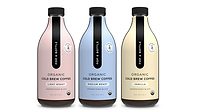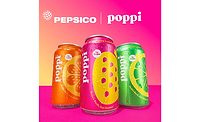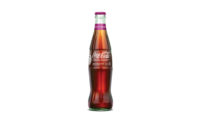Consumer behavior changing how foodservice beverage category will progress
Suppliers developing equipment to alleviate consumer concerns with to-go beverages

Few would question the affects that foodservice operators experienced this past year as a result of the pandemic. Shutdowns of indoor dining forced many operators to embrace the gig economy to keep operations afloat. Additionally, operators were forced to re-evaluate and streamline menus to minimize the impact. Even with these adjustments, one particular area in foodservice took a monumental hit: beverage orders.
Recently, Technomic released its Beverage Category Sizing report, which explores the impact of the pandemic on foodservice beverages. In the report, the market research firm identified the following key findings:
- Overall beverage sales were down 31% on a volume basis and 29% in consumer spending.
- In 2020, cold-dispensed beverage volume was down 30%, while hot beverages were down 34% in volume.
- 35% of operators reduced the number of beverages that they were offering due to COVID-19.
- 52% of consumers who ordered food from foodservice without a beverage reported this is because they already had a beverage at home, which is up from 47% who said the same in 2019.
As recovery efforts proliferate throughout the country, Technomic notes that foodservice operators should embrace some of the new habits that likely are here to stay.
“While the beverage category took a hit due to the pandemic, it remains a critical piece of revenue and profitability for foodservice operators. Going forward, operators will need to focus on keeping up with changing dynamics and planning for the industry's recovery,” said David Henkes, senior principal and head of strategic partnerships at Technomic, in a statement. “From focused daypart strategies to re-establishing themselves into consumers' post-pandemic routines, operators will need to understand changing consumer habits in order to guide foodservice beverage strategies.”
Equipment suppliers for the foodservice industry also have noticed a shift in consumers’ engagement with foodservice operators and their beverage offerings. GP PRO, a division of Georgia-Pacific, shared data that notes that 34% of respondents received a fountain beverage that had totally or partially spilled in transit, another 34% received a drink that appeared messy or unclean, and 21% had reason to believe their beverage had been tampered with.
“COVID-19 has led to unprecedented growth in the takeout, delivery and drive-thru market — growth that is sustaining many foodservice operators who can't currently offer in-person dining,” said Alec Frisch, vice president and general manager of foodservice with GP PRO, in a statement. “But if operators want to see that off-premise growth continue, as an industry, we need to solve these customer concerns.”
This motivated GP PRO’s introduction of a new Automated Sealing Machine, which provides a tamper-evident, spill-resistant sealed film on to-go cups, the company says. The seal helps keep the beverage hygienically contained in the cup until the customer inserts a straw or removes the film.
GP PRO also surveyed consumers to get their feedback on the sealing machine, which found, in product trails, that 91% of consumers indicated that the Automated Sealing Machine would help prevent a fountain drink from spilling in a car, while 85% felt more confident that a fountain beverage had not been tampered with if it were sealed by the Automated Sealing Machine, it states.
As foodservice begins to rebound, we can expect to see more innovations from operators and suppliers.
Looking for a reprint of this article?
From high-res PDFs to custom plaques, order your copy today!







